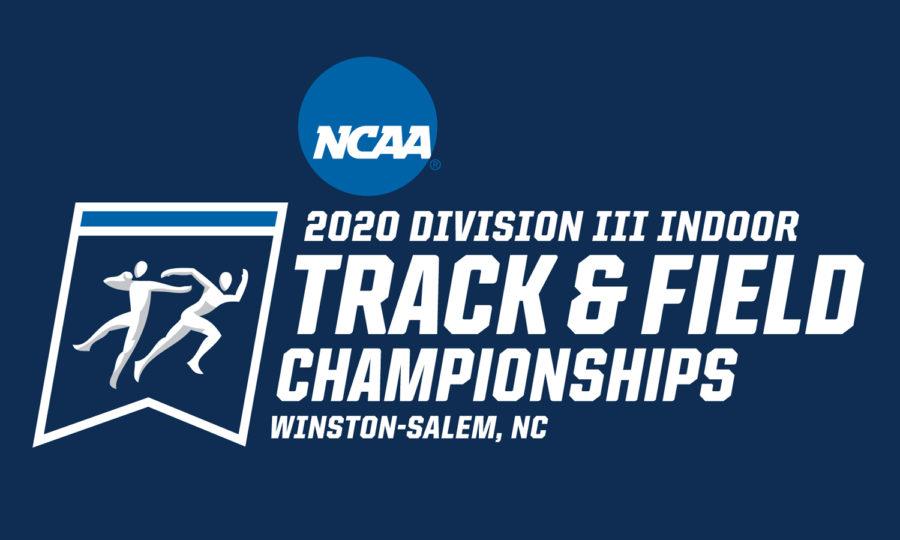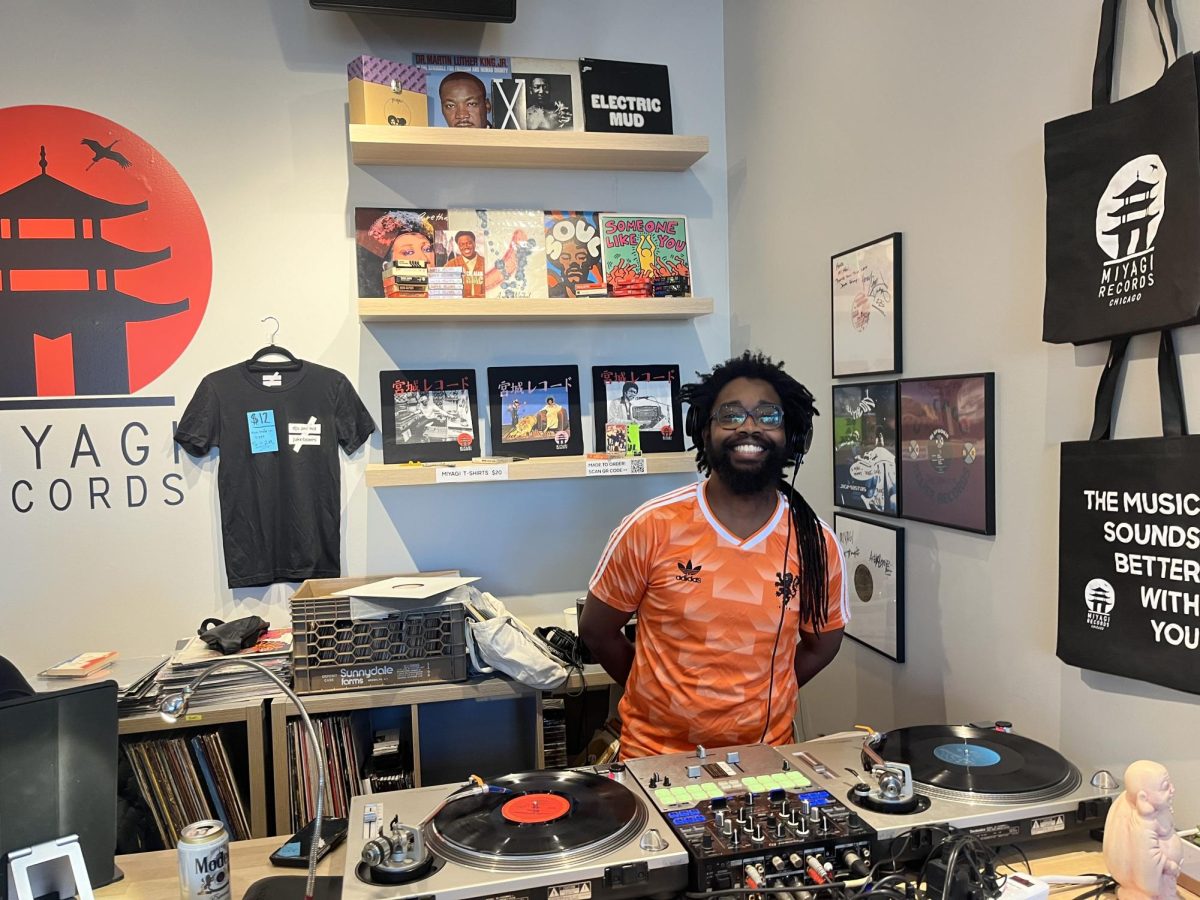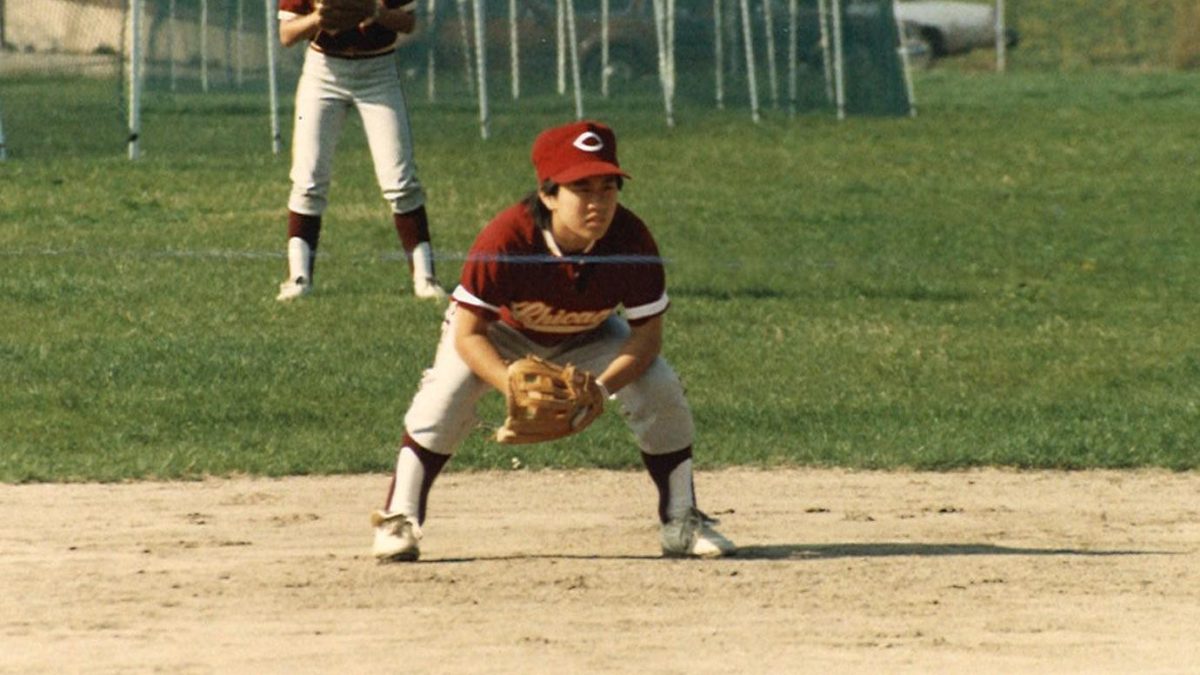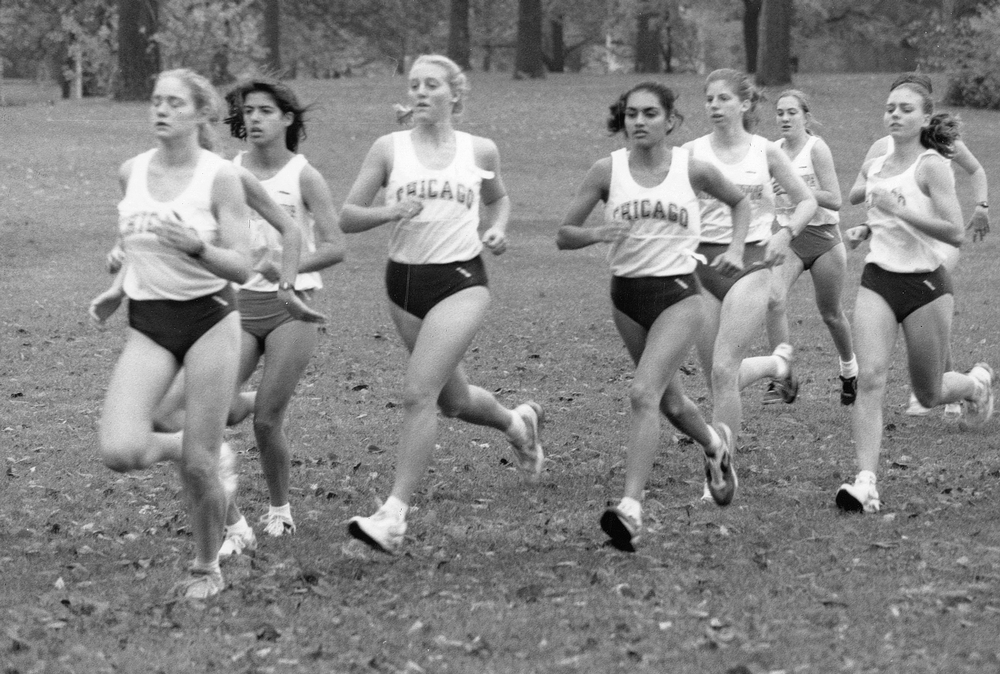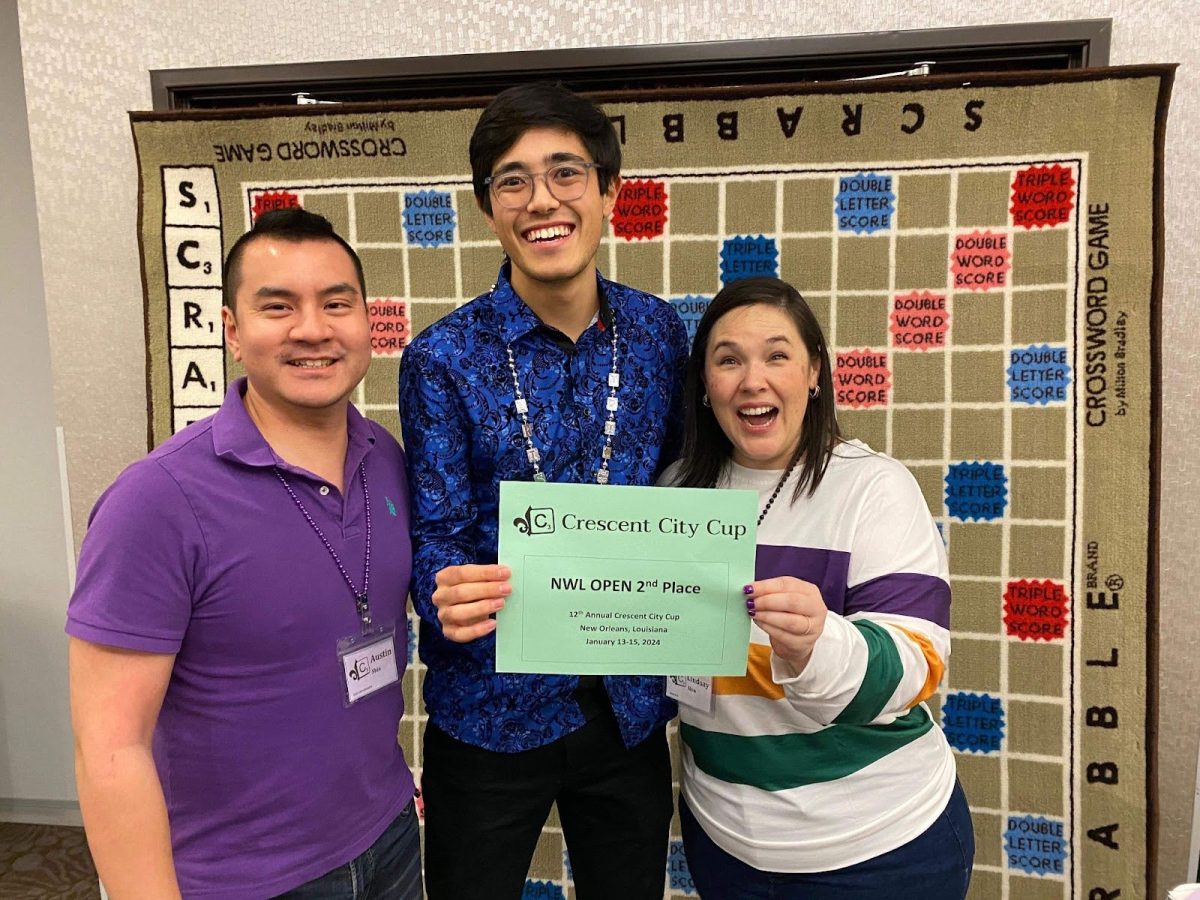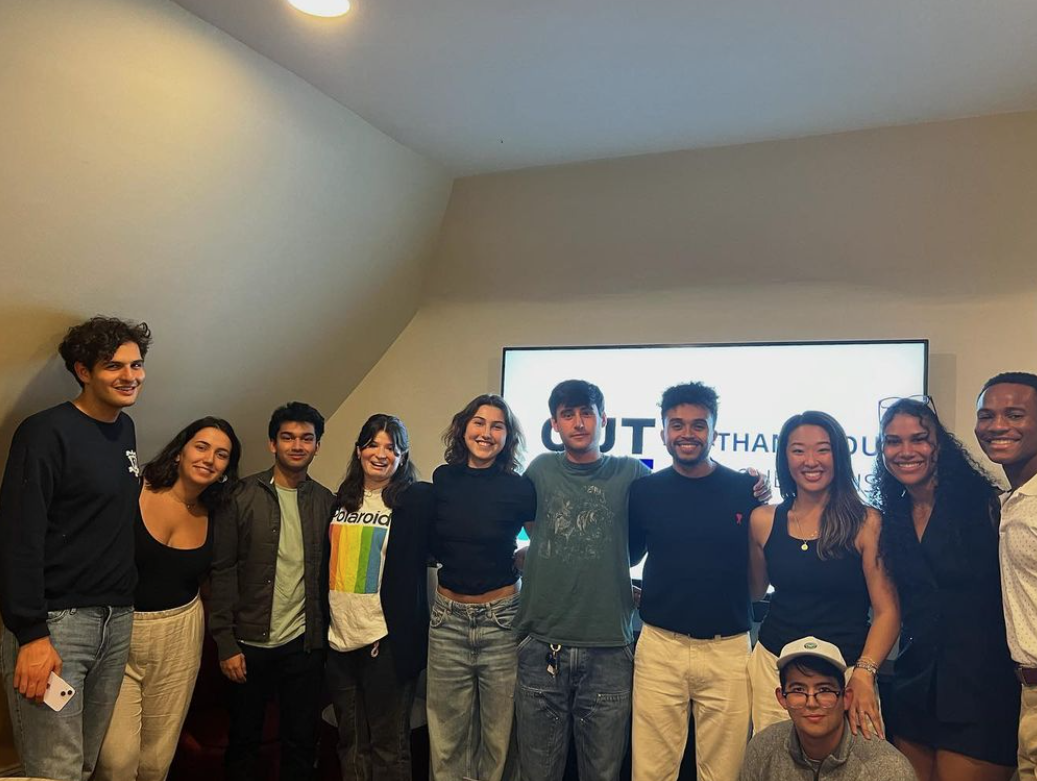Second-year wrestler Ben Sarasin found out while watching ESPN. Fourth-year thrower Alexander Scott woke up from a nap to an update on his phone. Fourth-year pentathlete Laura Darcey and second-year jumper Isabel Maletich heard from head coach Chris Hall after a pre-meet practice. No matter the delivery, the message was the same: All NCAA championships were cancelled.
With the tournaments so close—the next day—many athletes and coaches had clung to the hope that the championships could continue, even as news of other businesses, leagues, and universities shutting down rolled in. “It was the day before the tournament…. Our coaches had just gotten back from a meeting at the venue, where the tournament director had told them that the tournament was definitely still going to happen,” Sarasin recalled.
“That morning we had started seeing news about things shutting down and schools moving online…. Honestly it felt inevitable at that point, but I was still holding out hope that they would let us compete,” Darcey said.
Confronted with the unprecedented cancellation of winter sport championships, a mix of confusion, disbelief, and devastation ensued. The members of the track team “were all a little confused because we already practiced at the facility with almost every team…. We thought that since we were all there and had already been exposed, we should just compete,” according to Maletich.
The team knew that their outdoor season was cancelled, so for seniors, like Scott, “I was comforted only by the fact that I had one more shot—pun intended—so when we found out the indoor championship was cancelled as well, I was devastated. We were a day away.” Darcy’s parents had flown in from London to attend the meet, and so she focused on just “trying to hold it together until I saw them.” The track team was slated to remain in North Carolina for the next several days and soon turned from the disappointment of the ending to making their last few days together memorable.
Sarasin described a “disbelief—the whole situation was so surreal. Now everything seems a little more normal since we’ve been living this reality for over a month now, but at the time it was all so unprecedented and shocking.” Hailing from Des Moines, Iowa, where the championships were being held, he was able to go directly to his parents’ house while the team headed back to Chicago. “I remember going to sleep that night in my old bed, knowing I was supposed to be wrestling at nationals the next day, feeling like I was living in some sort of dream,” he says.
Losing the chance to compete for a national championship—a chance that so few athletes realize—was “heart-breaking,” in Darcy’s words. Darcy was the top seed in the pentathlon and the third seed in the high jump, an event in which she placed second in the 2019 outdoor championship. Earlier this year, she had made history with the third-best pentathlon performance in Division-III history, and she was a heavy favorite to claim the national title at the indoor meet. Winning that elusive championship was, Darcy claimed, “all I thought about for the last year,” and “finishing my college career without a national title under my belt really hurt.” She described her four-year plan: qualify for nationals, become an All-American, finish in the top three, and win it all her senior year. While she will never get the chance to accomplish that last goal, Darcy said, “In my mind I still executed that plan.” Since the cancellation, Darcy has been named the DIII USTFCCCA Women’s Field Athlete of the Year, and she plans to return home to England to compete post-graduation.
The defending national champion in the long jump and the top seed in that event and the triple jump, Maletich said, “What is so hard about losing this opportunity is that you never really know what will happen in the future, especially with athletics” given changing competition and injuries. She knows that, unlike Darcy, she will get another shot to compete for UChicago, and this situation “will serve as encouragement next year to work harder and perform better.”
Sarasin, too, recognized the keen loss of championship competition. After an All-American finish last season, he was the favorite in his weight class, coming off an incredible year in which he went 26–3. “In wrestling, the other competitions in the year matter, but they also really don’t. Everything is more so practice for what is really important—the national championship,” Sarasin described.
For the underclassmen who will get the opportunity to compete again, the cancellation just reminded them to appreciate those opportunities. It becomes easy for college athletes to take a sport they have been playing for their whole life for granted. “Looking ahead, I realized I only have a couple years left; you can’t really go around and wrestle after college very easily. The abrupt end to the season made this even more jarring,” Sarasin said. He added that he feels more for his fourth-year teammate Steve Bonsall, who had to “[end] his career with a big question mark.”
Maletich, too, emphasized the gratitude that the situation has lent: “Track has been a part of my life since I was 13-years-old and I have trouble picturing my life without it. Having the season end so soon makes me miss the sport more than I ever could have imagined.”
The 2020 season will most likely be remembered, in popular culture, for its dramatic ending—or lack thereof—but athletes have been forced to find solace in the entirety of the season, rather than just its cancellation. Sarasin will remember the season “very fondly,” especially the UAA Championships in New York City and the senior leadership and character that first brought him to UChicago. Maletich described the season as a “whirlwind,” notable for the talented team and the memories made, while Scott called it “a slight hiccup.” Darcy stressed that the ending “doesn’t detract from everything my team and I achieved,” a point that Sarasin echoed. “Just because I didn’t get to take home a shiny medal didn’t mean the work I put in doesn’t have value,” he said.
“The journey is the goal, right? We lost the opportunity to compete and show it off—that takes nothing away from all of our hard work,” Scott summarized.
Life has had to go on, though, as it has for everyone in this global pandemic. Achieving a sense of closure has been a process, a gradual reckoning of all that has been lost. “I’ve definitely had my closure. The world turned upside down, and right now I just feel fortunate to have stability and health,” Sarasin said.
Spending time with family and reflecting on the past season has provided Maletich with closure on her season, and she has learned that she is more resilient than previously thought. “With everything feeling backwards and abnormal, it is comforting to know that I can still handle myself and find my way in this new normal,” she said.
A consummate planner, Darcy has focused on “staying in the moment, and taking every day as it comes…. I have learnt that things don’t always go as planned, and sometimes there is absolutely nothing you can do about it.” A public policy major with a human rights minor, she has thought a lot about her fortune with her safety, her health, and her finances.
Ultimately, the athletes agree that, for all the disappointment in the moment, the cancellation was the right decision. “In the subsequent days, everything going on seemed to accelerate rapidly, and it became incredibly clear that this was all about much more than sports…. My opportunity to compete pales in comparison to the safety and health of my family and community,” Sarasin said.
Scott put it in plain terms: “While the initial reaction was all ‘woe is me,’ if just one more person had died because we chose to carry on competing, it would not have been worth it.”
For now, the athletes have continued to stay connected to sport, using it as an outlet for social interaction and a distraction from the worldwide uncertainty. Darcy has continued to exercise as normal, using track “as a way to ground” herself, and discovered familiar comfort in working toward a long-term goal. Sarasin is eager to get back on the mat once everybody is healthy again. From home workout sessions and Zoom dance classes to watching reruns of past football games, Maletich considers athletics a connector and distraction that “is truly needed” in a time like this.
Scott applies the lessons of athletics with even greater urgency to the current crisis: “Training for a sport is all about sacrificing the present to succeed in the future. We are sacrificing now.”




